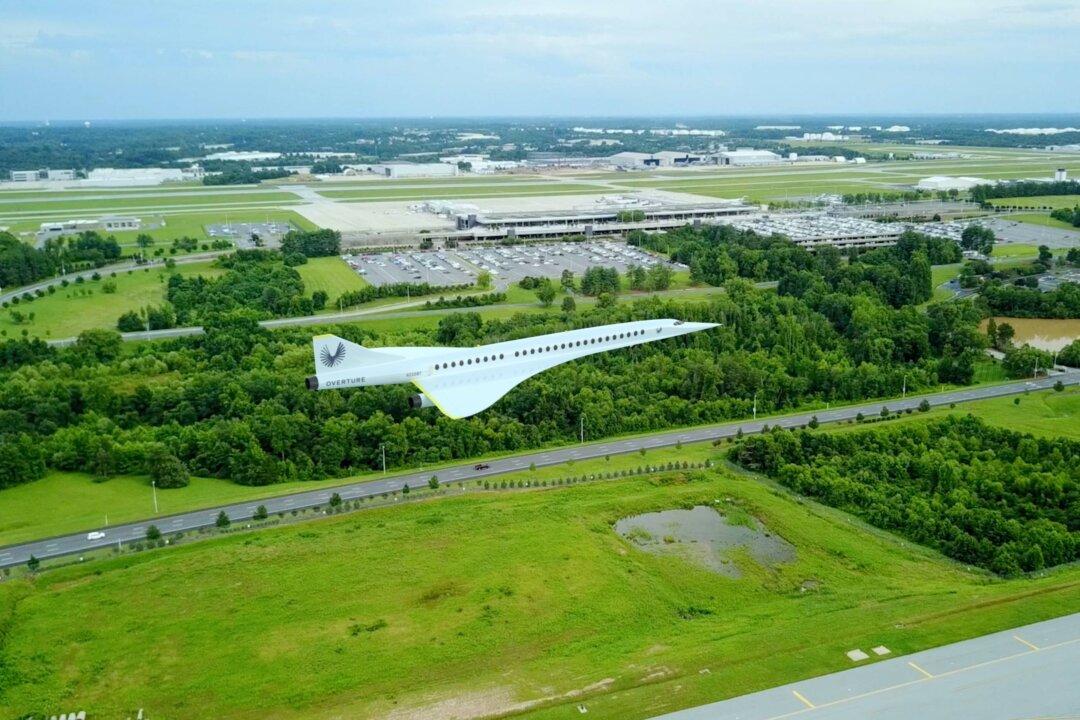A Colorado-based aviation company has selected North Carolina for its state-of-the-art supersonic airliner manufacturing facility, in a venture that seeks to bring faster-than-sound Concorde-type flights back into commercial usage.
Boom Supersonic has selected the Piedmont Triad International Airport in Greensboro, North Carolina, to build the “world’s fastest and most sustainable supersonic airliner,” the Overture, according to a Jan. 26 announcement.





